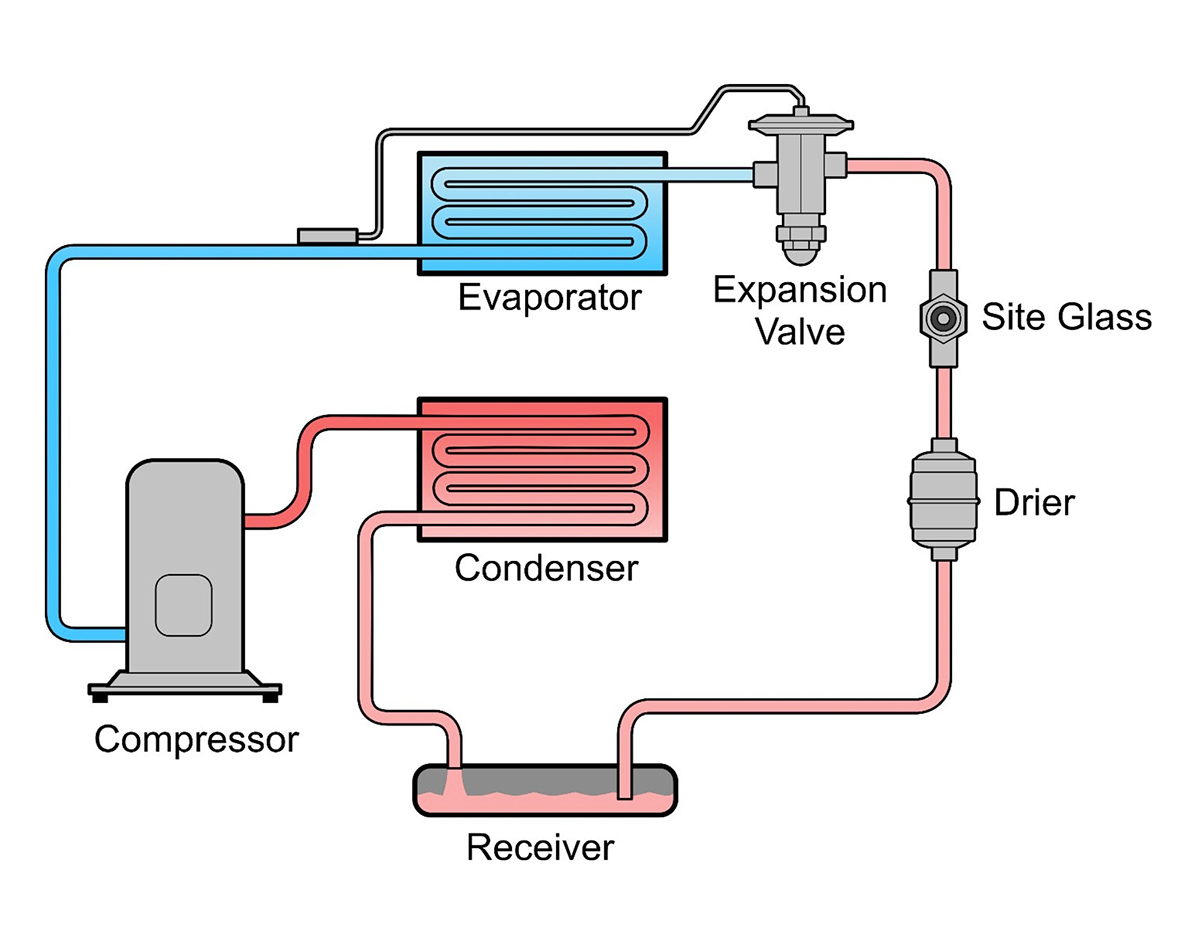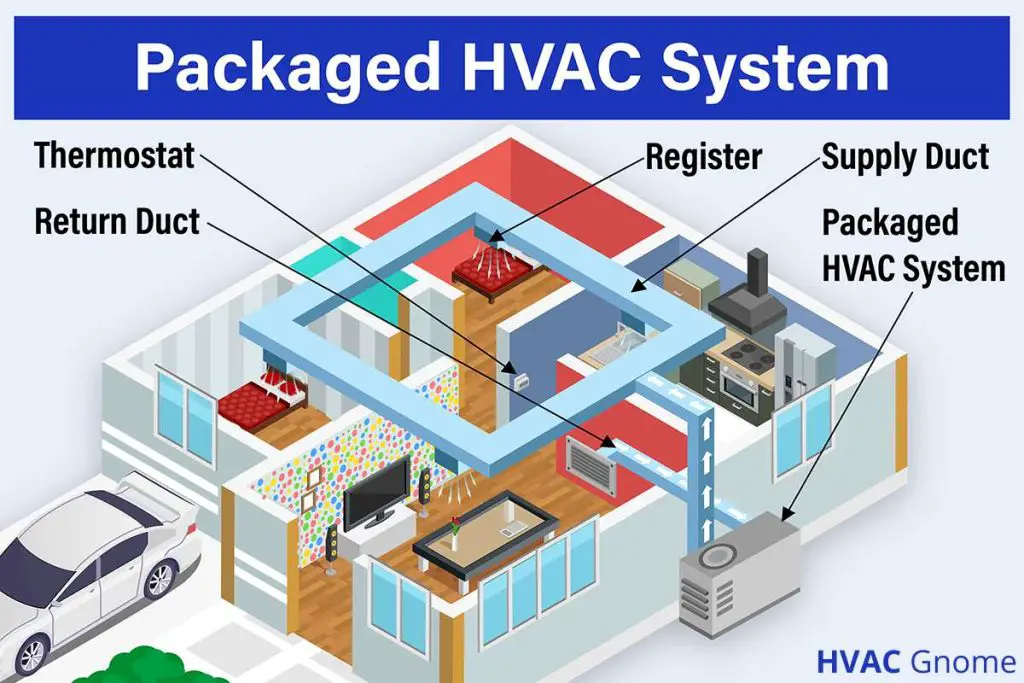HVAC stands for Heating, Ventilation, and Air Conditioning. This system keeps our homes comfortable. It controls temperature, humidity, and air quality.
Why HVAC Systems Are Important
HVAC systems are crucial for many reasons. Here are some key points:
- Comfort: They help maintain a comfortable indoor temperature.
- Air Quality: They filter and clean the air we breathe.
- Energy Efficiency: Modern systems are designed to save energy.
- Health: Proper ventilation reduces the risk of respiratory problems.

Credit: comfortbyjansen.com
Types of HVAC Systems
There are several types of HVAC systems. Each type serves different needs. Here are the most common ones:
Split Systems
Split systems are the most common. They have two main components:
- Indoor Unit: This unit handles cooling and heating.
- Outdoor Unit: This unit releases heat outside.
Packaged Systems
Packaged systems have all components in one unit. They are ideal for homes with limited space.
Heat Pumps
Heat pumps work by transferring heat. They can both heat and cool your home. They are very efficient.
Ductless Systems
Ductless systems don’t use ducts. They have an indoor and outdoor unit. They are perfect for homes without ductwork.
How HVAC Systems Work
HVAC systems have several key parts. Let’s break them down:
Heating
The heating part keeps your home warm. It often uses a furnace or heat pump. The furnace burns fuel to create heat. The heat pump transfers heat from outside to inside.
Ventilation
Ventilation keeps fresh air flowing. It removes stale air and brings in fresh air. This helps keep the air clean and healthy.
Air Conditioning
The air conditioning part cools your home. It uses a refrigerant to absorb heat. The heat is then released outside. This makes the indoor air cool.

Credit: precisionenvironmentsinc.com
Maintaining Your HVAC System
Regular maintenance is essential. It keeps your system running smoothly. Here are some tips:
Change Filters
Change your air filters regularly. Dirty filters reduce efficiency. They can also damage your system.
Clean Vents And Ducts
Keep vents and ducts clean. This improves air quality and flow.
Check Thermostat
Make sure your thermostat works properly. It controls the temperature settings.
Schedule Professional Inspections
Have a professional inspect your system yearly. They can catch and fix problems early.
Energy Efficiency Tips
Using your HVAC system efficiently saves money. It also helps the environment. Here are some tips:
Use A Programmable Thermostat
A programmable thermostat can save energy. Set it to lower temperatures when you’re not home.
Seal Your Home
Seal windows and doors to prevent air leaks. This keeps your home more efficient.
Insulate Properly
Good insulation keeps the heat in during winter and out during summer.
Use Ceiling Fans
Ceiling fans help circulate air. They can make your HVAC system more effective.
Common HVAC Problems
Sometimes, HVAC systems have issues. Here are some common problems and solutions:
No Heating Or Cooling
If your system isn’t heating or cooling, check the thermostat. Make sure it’s set correctly. If that doesn’t work, call a professional.
Strange Noises
Strange noises can mean something is wrong. It could be a loose part or a motor issue. Have a professional check it out.
Poor Airflow
Poor airflow can be due to dirty filters or ducts. Cleaning them might help. If not, call a technician.
High Energy Bills
If your energy bills are high, your system might be inefficient. Regular maintenance can help. Also, consider upgrading to a more efficient system.
Frequently Asked Questions
What Is An Hvac System?
An HVAC system controls heating, ventilation, and air conditioning in buildings, ensuring comfort and air quality.
How Does An Hvac System Work?
An HVAC system regulates indoor climate by controlling temperature, humidity, and air flow through heating and cooling units.
Why Is Hvac Maintenance Important?
Regular HVAC maintenance increases system efficiency, extends lifespan, and improves indoor air quality, saving energy and reducing costs.
What Are The Types Of Hvac Systems?
The main types are split systems, hybrid systems, duct-free systems, and packaged heating and air systems.
Conclusion
HVAC systems are vital for comfort and health. They keep our homes at the right temperature. They also ensure good air quality.
There are different types of HVAC systems. Each type has its own benefits. Maintaining your system is crucial. It keeps it running efficiently. It also extends its lifespan.
Follow energy efficiency tips to save money. It also helps protect the environment.
If you have any problems, don’t hesitate to call a professional. They can diagnose and fix issues quickly.
Understanding your HVAC system helps you make informed decisions. Keep your home comfortable and healthy with a well-maintained HVAC system.

